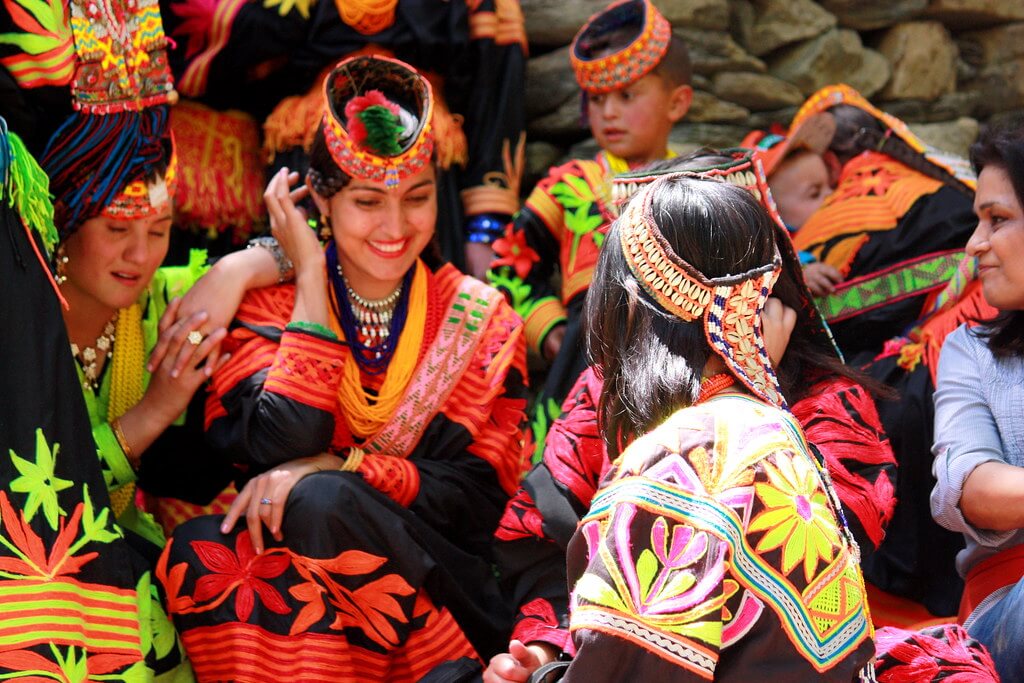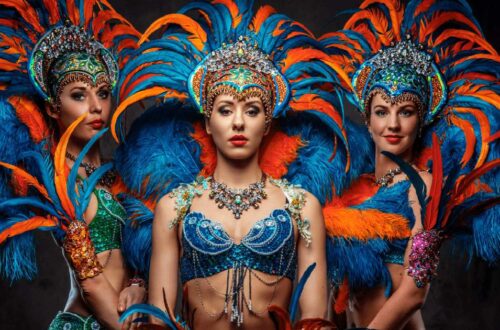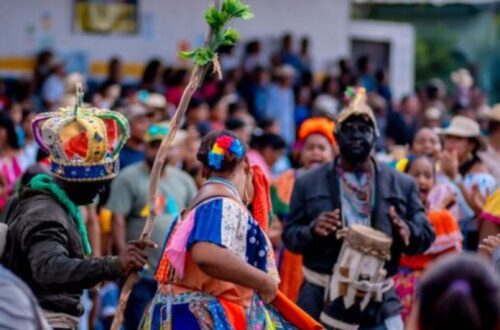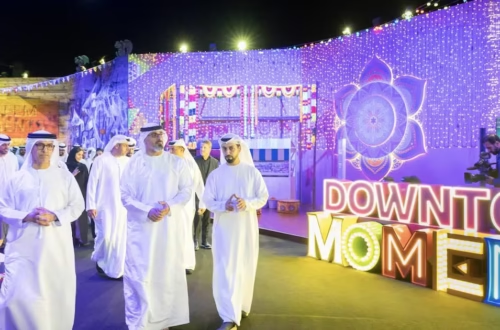Pakistan is a land where history, culture, and tradition weave a colorful tapestry that comes alive during its festivals. In 2025, the country’s cultural festivals promise to offer a breathtaking showcase of diversity, from the kite-filled skies of Lahore to the ancient rituals of the Kalash valleys. These events are more than celebrations; they’re a heartfelt expression of Pakistan’s identity, uniting communities through music, dance, food, and shared stories. Let’s embark on a journey through the most anticipated cultural festivals in Pakistan for 2025, exploring their significance, activities, and why they’re a must-experience for travelers and locals alike.
Why Pakistan’s Cultural Festivals Matter
Pakistan’s cultural festivals are a vibrant reflection of its diverse ethnic groups, languages, and traditions. From the bustling streets of Lahore to the serene mountains of Gilgit-Baltistan, these events celebrate the nation’s rich heritage, fostering unity and pride. They offer a unique opportunity to connect with Pakistan’s soul, whether you’re a local rediscovering your roots or a traveler seeking authentic experiences.
A Bridge Between Generations
These festivals serve as a living link to Pakistan’s past, preserving traditions like Ajrak printing, qawwali music, and folk dances. They bring together young and old, ensuring that ancient crafts and stories endure in a rapidly modernizing world. For instance, watching a master artisan at work during the Lok Virsa Mela feels like stepping into a history book, with every stitch and note telling a story of resilience.
A Celebration of Diversity
Pakistan’s festivals highlight its mosaic of cultures—Punjabi, Sindhi, Balochi, Pashtun, and more. Each event showcases regional uniqueness, from Sindhi folk tunes to the Kalash tribe’s pagan rituals. This diversity isn’t just celebrated; it’s a reminder of the unity that binds Pakistan’s people, making every festival a microcosm of the nation’s spirit.
Major Cultural Festivals to Experience in 2025
Pakistan’s 2025 festival calendar is packed with events that blend tradition, spirituality, and sheer joy. Below, we dive into the most prominent festivals, their dates, locations, and what makes them unforgettable.
Basant: The Kite-Flying Extravaganza
Basant, the iconic kite festival, heralds the arrival of spring in Punjab, particularly in Lahore, around February or March. Once a sky-dancing spectacle of colorful kites, it’s faced restrictions due to safety concerns, but efforts are underway to revive it in safer forms. Imagine rooftops buzzing with laughter, music, and the thrill of kite battles under a vibrant sky.
Why Basant Captivates
Though officially banned in some areas due to hazardous kite strings, Basant remains a cultural gem. In 2025, expect controlled events with safer materials, allowing families to enjoy kite-flying, traditional Punjabi dishes like halwa puri, and lively music. It’s a festival that captures the exuberance of spring and Punjab’s zest for life.
Tips for Enjoying Basant
- Where to Go: Lahore’s old city or organized events at cultural venues.
- What to Bring: Bright clothing, preferably yellow, to match the festive vibe.
- Safety Tip: Use only approved kite strings to avoid accidents.
Sindh Festival: A Celebration of Indus Valley Heritage
Held in February across Sindh, particularly in Karachi, Mohenjo-Daro, and the Thar Desert, the Sindh Festival is a vibrant tribute to the province’s ancient heritage. This event showcases Sindhi music, art, and cuisine, rooted in the Indus Valley Civilization. Picture yourself swaying to folk tunes under a starlit desert sky, surrounded by intricate Ajrak textiles.
Key Attractions
The festival features live performances by Sindhi folk artists, exhibitions of embroidery and pottery, and mouthwatering dishes like Sindhi biryani. It’s a sensory feast that celebrates Sindh’s historical significance and artistic legacy, making it a must-visit for culture enthusiasts.
Planning Your Visit
- Best Locations: Mohenjo-Daro for historical immersion, Karachi for urban vibrancy.
- What to Expect: Colorful stalls, dance performances, and warm Sindhi hospitality.
- Pro Tip: Book accommodations early, as February sees a surge in visitors.
Shandur Polo Festival: Sport Meets Spectacle
Set against the breathtaking backdrop of Shandur Pass at 3,700 meters, the Shandur Polo Festival in July is the world’s highest polo tournament. Teams from Gilgit-Baltistan and Chitral compete in thrilling matches, accompanied by folk music, dance, and local cuisine. It’s a festival where athleticism meets cultural pride.
Why It’s Unique
The rugged Himalayan terrain and the passion of the players make this event unforgettable. Spectators camp by Shandur Lake, soaking in the crisp mountain air and vibrant traditions. It’s a celebration of northern Pakistan’s resilience and community spirit.
What to Pack
- Warm Clothing: Nights in Shandur can be chilly, even in July.
- Sturdy Footwear: Essential for navigating the mountainous terrain.
- Camera: To capture the dramatic polo matches and scenic beauty.
Kalash Festivals: Ancient Traditions in Modern Times
The Kalash people of Chitral celebrate three major festivals in 2025: Joshi (May), Uchal (July), and Choimus (December). These events, rooted in ancient pagan traditions, feature colorful dances, rituals, and feasts. The Kalash valleys come alive with music and vibrant attire, offering a glimpse into a culture untouched by time.
Joshi Festival (May)
Marking spring’s arrival, Joshi features dances and offerings to gods. It’s a joyous celebration where young Kalash choose future partners, blending romance with tradition. The valley’s lush greenery adds to the festive charm.
Uchal Festival (July)
This harvest festival includes feasts and rituals, with traditional music echoing through the valleys. Visitors can savor local dishes made from seasonal ingredients, immersing themselves in Kalash hospitality.
Choimus Festival (December)
The winter festival, Choimus, is a spiritual event with sacrifices and bonfires. It’s a time for the Kalash to honor their gods and spirits, creating a mystical atmosphere in the snow-draped valleys.
Travel Tips for Kalash Festivals
- Hiring Guides: Local guides ensure safe access to remote valleys.
- Respecting Traditions: Dress modestly and seek permission before photographing rituals.
- Accommodation: Book guesthouses in Chitral early, as they fill up quickly.
Lok Virsa Mela: Pakistan’s Cultural Heartbeat
Held in Islamabad in October, the Lok Virsa Mela is Pakistan’s largest cultural festival, showcasing the nation’s diverse heritage. Artisans, musicians, and dancers from every province gather to display their crafts, from handwoven textiles to soulful qawwali. It’s a 10-day celebration of Pakistan’s unity in diversity.
What to Expect
The festival features beautifully decorated pavilions, each representing a province or region. Visitors can shop for handmade crafts, enjoy folk performances, and taste regional delicacies. The evening music concerts are a highlight, drawing crowds with their infectious energy.
Why It’s a Must-Visit
- Cultural Immersion: Experience Pakistan’s entire heritage in one place.
- Artisan Support: Buying crafts directly supports rural communities.
- Family-Friendly: Activities for all ages, from dance workshops to food stalls.
Urs Festivals: Spiritual Devotion in Motion
Urs festivals, commemorating the death anniversaries of Sufi saints, are deeply spiritual events held across Pakistan. In 2025, key Urs celebrations include those of Data Ganj Bakhsh in Lahore and Lal Shahbaz Qalandar in Sehwan. These festivals feature qawwali music, devotional gatherings, and free meals (langar).
Urs of Data Ganj Bakhsh (Lahore)
Held annually, this three-day event draws thousands to the Data Darbar shrine. The soulful qawwali performances and communal meals create a spiritually charged atmosphere, uniting people across faiths.
Urs of Lal Shahbaz Qalandar (Sehwan)
This festival in Sindh is a vibrant blend of spirituality and celebration. Devotees dance to rhythmic drumbeats, and the shrine buzzes with energy, offering a profound cultural experience.
Tips for Attending Urs
- Dress Respectfully: Cover shoulders and knees to honor the sacred setting.
- Timing: Arrive early to avoid crowds and experience quieter moments.
- Local Guides: Helpful for navigating busy shrines and understanding rituals.
Comparison of Major Festivals
| Festival | Date | Location | Key Activities | Cultural Significance |
|---|---|---|---|---|
| Basant | February/March | Lahore, Punjab | Kite-flying, music, traditional food | Celebrates spring and Punjabi vibrancy |
| Sindh Festival | February | Karachi, Mohenjo-Daro | Folk music, crafts, Sindhi cuisine | Honors Indus Valley heritage |
| Shandur Polo Festival | July | Shandur Pass | Polo matches, folk performances, camping | Showcases northern Pakistan’s resilience |
| Kalash Festivals | May, July, December | Chitral Valleys | Dances, rituals, feasts | Preserves ancient Kalash traditions |
| Lok Virsa Mela | October | Islamabad | Artisan crafts, music, cultural pavilions | Celebrates Pakistan’s diverse heritage |
| Urs Festivals | Varies | Lahore, Sehwan | Qawwali, devotional gatherings, langar | Honors Sufi saints, promotes spiritual unity |
Pros and Cons of Attending Cultural Festivals
Pros
- Cultural Immersion: Experience Pakistan’s traditions firsthand, from music to cuisine.
- Community Connection: Festivals foster a sense of belonging, uniting diverse groups.
- Economic Support: Your participation supports local artisans and vendors.
- Memorable Experiences: From polo matches to qawwali nights, these events create lasting memories.
Cons
- Crowds and Logistics: Popular festivals like Lok Virsa can be crowded, requiring careful planning.
- Safety Concerns: Events like Basant may have restrictions due to past safety issues.
- Weather Challenges: Mountain festivals like Shandur require preparation for unpredictable weather.
- Accessibility: Remote locations like Kalash valleys may be hard to reach without guides.
People Also Ask (PAA)
What are the most popular cultural festivals in Pakistan?
The most popular festivals include Basant, Sindh Festival, Shandur Polo Festival, Kalash Festivals, and Lok Virsa Mela. Each offers a unique blend of music, dance, and traditions, showcasing Pakistan’s diverse heritage.
When is the best time to visit Pakistan for festivals?
Spring (February–May) and autumn (October) are ideal, with festivals like Basant, Sindh Festival, and Lok Virsa Mela. Check lunar calendars for religious events like Urs, as dates vary.
Are Pakistan’s cultural festivals safe for tourists?
Most festivals are safe, especially in major cities like Lahore and Islamabad. However, remote areas like Shandur or Chitral require local guides and adherence to safety guidelines. Always check travel advisories.
How can I plan a trip to attend these festivals?
Book accommodations and transport early, especially for popular events like Shandur Polo Festival. Hire local guides for remote areas, and respect cultural norms by dressing modestly.
Planning Your Festival Adventure
Informational: Understanding the Festivals
To fully appreciate Pakistan’s festivals, research their historical and cultural roots. For example, the Sindh Festival connects to the ancient Indus Valley Civilization, while Urs festivals reflect Pakistan’s Sufi heritage. Websites like Guide to Pakistan offer detailed insights into festival histories and activities.
Navigational: Where to Experience Festivals
- Lahore: Basant and Urs of Data Ganj Bakhsh.
- Karachi/Mohenjo-Daro: Sindh Festival.
- Chitral: Kalash Festivals and Shandur Polo Festival.
- Islamabad: Lok Virsa Mela.
Check Apricot Tours for guided festival tours, especially for remote regions like Gilgit-Baltistan.
Transactional: Best Tools for Planning
- Booking Platforms: Use Careem or Uber for city travel, and local jeep services for northern areas.
- Accommodation: Book via Serena Hotels or local guesthouses for comfort and proximity.
- Travel Apps: Apps like TripAdvisor offer reviews and tips for festival-related activities.
FAQ Section
What makes Pakistan’s cultural festivals unique?
Pakistan’s festivals stand out for their diversity, blending religious, regional, and historical elements. From the ancient rituals of the Kalash to the modern vibrancy of Lok Virsa, each event offers a unique cultural lens.
Are these festivals suitable for families?
Yes, most festivals, like Lok Virsa Mela and Sindh Festival, are family-friendly, with activities for all ages. However, check safety guidelines for events like Basant or remote festivals like Shandur.
How can I respect local customs during festivals?
Dress modestly, especially at religious events like Urs. Seek permission before photographing rituals, and engage with locals respectfully to learn about their traditions.
Which festival is best for first-time visitors?
The Lok Virsa Mela in Islamabad is ideal for first-timers, offering a comprehensive showcase of Pakistan’s culture in a safe, accessible setting.
Can I participate in festival activities?
Many festivals encourage participation, like kite-flying at Basant or dancing at Kalash events. Always ask locals for guidance to ensure respectful engagement.
A Personal Reflection
Last year, I attended the Lok Virsa Mela, and the experience was nothing short of magical. Walking through the pavilions, I was struck by the warmth of the artisans, who shared stories of their craft with pride. The aroma of Sindhi biryani and the rhythm of qawwali music created a sensory overload I’ll never forget. It reminded me that Pakistan’s festivals aren’t just events—they’re a celebration of life, resilience, and community. In 2025, I plan to explore the Kalash valleys, drawn by the allure of their ancient traditions. I hope you’ll join me in discovering the heart of Pakistan through its festivals.
Conclusion
Pakistan’s cultural festivals in 2025 offer a vibrant window into the nation’s soul, from the high-energy kite battles of Basant to the spiritual devotion of Urs celebrations. These events are more than spectacles; they’re a testament to Pakistan’s unity, diversity, and enduring heritage. Whether you’re a local or a traveler, attending these festivals will leave you with memories that linger long after the music fades. Plan your visit, pack your enthusiasm, and dive into the colors, sounds, and flavors of Pakistan’s cultural tapestry.





